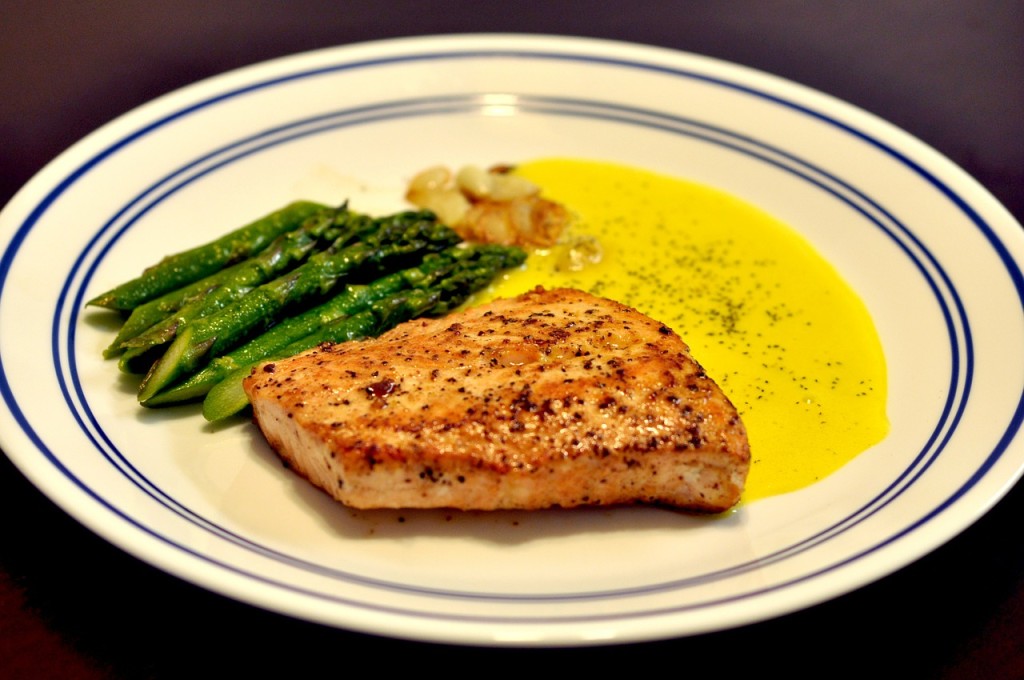Protein is an important component in every cell of our body. Recently it has been found that intake of protein rich food also lowers the risk of heart disease.
Protein makes up our skin, hair, nails, bones, and muscles. Protein is also important for repairing cellular damages, and it’s also used by our body when producing enzymes, hormones, and other chemicals in our body. Deficiency of protein can retard growth, cause chemical imbalance and lead to diseases.
Our body needs relatively large amount of protein in our daily diet to carry out several bodily functions. Our organs also need protein to develop and repair itself. However, our body does not store excess proteins the same way it stores fat and carbohydrates, and therefore, we must supply our body with a regular source of protein.
“A new study published today (August 27, 2015) reveals that people who eat high levels of certain have lower blood pressure and arterial stiffness. Increasing intake from protein-rich foods such as meat, fish, dairy produce, beans, lentils, broccoli and spinach could be an important and readily achievable way to reduce people’s risk of cardiovascular disease.” – ScienceDaily
Fish as a source of high protein
Fish is an important source of high quality animal based proteins. Several studies have found that increasing amino acid rich food in our daily diet can lower our blood pressure and risk of heart diseases. Fish is a high protein, low fat food that is also delicious and easy to include in our daily diet.
“Fish is a food of excellent nutritional value, providing high quality protein and a wide variety of vitamins and minerals, including vitamins A and D, phosphorus, magnesium, selenium, and iodine in marine fish. Its protein – like that of meat – is easily digestible and favorably complements dietary protein provided by cereals and legumes that are typically consumed in many developing countries.” – Focus
In comparison to other animal based proteins, consumers have a wide choice for fish as far as their budget, taste, eating habits and location is concerned. [Amino Acid Compositions of 27 Food Fishes and Their Importance in Clinical Nutrition]
How protein rich seafoods benefits your heart health
 Fish is often referred to as an ultimate superfood. Oily fish such as salmon and sardines contain high amounts of omega-3 fatty acids that improve your heart health. They are unsaturated fatty acids, which, are found to lower your blood cholesterol when substituted for saturated fatty acids found in other animal based meat such as beef or chicken.
Fish is often referred to as an ultimate superfood. Oily fish such as salmon and sardines contain high amounts of omega-3 fatty acids that improve your heart health. They are unsaturated fatty acids, which, are found to lower your blood cholesterol when substituted for saturated fatty acids found in other animal based meat such as beef or chicken.
“The main beneficial nutrient appears to be omega-3 fatty acids in fatty fish. Omega-3 fatty acids are a type of unsaturated fatty acid that may reduce inflammation throughout the body. Inflammation in the body can damage your blood vessels and lead to heart disease.” – Mayo Clinic
Fish is surprisingly healthy and it’s also relatively cheap and easy to include in your daily diet. Try to find fish from your local farmers, or even better, raise your own fish at home and benefit several ways from them.
We’d love to hear from you. For any question regarding aquaculture, please leave a comment below, or please call our office at: (303) 495-3705 to get in touch with us. Want to book a meeting with us? Click here to Book A Meeting with us. We’d also appreciate it if you visit our Facebook page and leave a comment.
Source: WorldWide Aquaculture
Related articles and resources:
- Common Health Questions of Eating Fish | WorldWide Aquaculture
- High protein foods boost cardiovascular health, as much as quitting smoking or getting exercise — ScienceDaily
- Focus: Fish is food for the brain as well as good protein
- Amino Acid Compositions of 27 Food Fishes and Their Importance in Clinical Nutrition
- Omega-3 in fish: How eating fish helps your heart – Mayo Clinic
- 7 Surprising Health Benefits of Eating Fish | WorldWide Aquaculture
- Healthy Fish Recipes to Spice up Your Dinner | WorldWide Aquaculture
- Amino Acid Compositions of 27 Food Fishes and Their Importance in Clinical Nutrition
- Health Benefits of Eating Seafood – Is Seafood Safe? | WorldWide Aquaculture




